
Aki Takahashi
Japanese tea and sake cup terminology
Trying to navigate the complex naming of the Japanese ceramic tea wares is a challenge but I will add a few terms here to help identify some of the pieces below.
A chawan is simply a teacup without a handle primarily used in the Japanese Tea Ceremony for preparing and drinking Matcha (powdered green tea), but is also used for other types of tea as well. It can also refer to a bowl for rice where it is called a “gohan chawan”. The word “yunomi chawan” is sometimes used to clarify its purpose as a teacup. For more formal settings, a wide-mouthed cup called kumidashi chawan is used to serve ocha (green tea).

Masato Yamaguchi, Mori Yamaguchi chawan
The yunomi is a form of teacup, typically made from a ceramic material, being taller than wide, with a trimmed or turned foot. Unlike the more formal chawan tea bowl, the yunomi is made for daily (or informal) tea drinking. The favoured shape is the “tsusugata” (a simple cylindrical form) Recommended stoneware styles for yunomi are Hagi, Shino, Karatsu and Mashiko. The Hagi yunomi is known for going through seven stages of change and deepening in aji (flavour) as more green tea is poured into it. The white Shino yunomi, with its thickly applied glaze, almost never feels hot to the touch and the splendid ocha color is clearly visible. In contrast, a Bizen yunomi is unglazed and quite hot to the touch. There are numerous names for the different shapes in the chawan and yunomi. For example the Hatazori-gata is the Curving Lip type 0f tea bowl while the Momo-gata has a peach form.

Komosaki Ryuichi oribe yunomi
Oribe yaki (yaki=fired) is one of the many wares produced in the prolific pottery producing areas around Seto, Aichi prefecture and Tajimi, and the Mino area of the Gifu prefecture. Easily recognisable by its distinctive green glaze, Oribe yaki has four main types; E-Oribe (patterns done with iron underglaze), Kuro-Oribe (an almost black, dark green glaze),Ao-oribe ( light green glaze) and Aka-Oribe (incised patterns covered with various glazes). A favourite with the tea masters of the Momoyama period (in the late 16th century), the potter Furuta Oribe, is said to have lent his name to the pottery.

Mutsu Takayanagi porcelain tea cup
Kyuusu is the generic name for any ceramic or pottery teapot. Kyuusu is often used to describe the side handled (yokode) teapot. Celadon porcelain with its distinctive pale blue-green color is called Seiji. “Kama” read as “gama” in Japanese means “kiln”. The term Gosu refers to the cobalt oxide glaze used to produce the blue designs on sometsuke porcelain. Jiki is the Japanese word for Porcelain. Hakuji, traditionally speaking, is the white porcelain made with the superior kaolin clay from Izumiyama, usually very thin in structure.
Shino yaki is characterised by it’s thick milky-white glaze over an orange or pinkish clay base, pockmarked with tiny holes. It is said to be the first ware to decorate its pieces with brush-drawn designs. These were sometimes created with iron oxide, which changed the glaze to a rusty color after firing. The soft rugged shapes with their squat forms give the pieces a rustic appeal and the thick glaze with its nubbly texture imbues each piece with a sense of warmth. Other Shino ware styles were a grey glaze called “Nezumi shino”and pieces made with reddish or yellow clay named “Beni shino”.
Guinomi, choko, and sakazuki are three words that mean the same thing — sake cup. Among collectors, the Karatsu guinomi reigns supreme.
The images I’m using here are from the excellent blog called ‘Shelves of Sweet Beans’, which features a remarkable and large collection of Japanese tea wares and sake cups from a collector in Osaka.

Tsukamoto Haruhiko ceramic sake flask and guinomi

Fukimi Fumi Oribe footed cup

Aki Takahashi— ‘Kanai Cup Hokusai’

Atsushi Nakada yunomi cup

Bizen sake bowl – Ishii Takahiro

Elegant carved gold brush footed cup – Tsuyoshi Shimizu

Glazed white glaze sake machine – Kato Yoshiyasu

Fukuno Michita geometric pattern tea bowl

Tsuyoshi Shimizu incised texture bottle

Ichikawa Toru – Golden color ‘Suzaku’ Teru (extra large)

Kazu Yamada – tri footed yunomi tea cup

Hiroaki Toyohaku yunomi

Hiroyuki Tomita – sake cup with drip glaze

Hitoshi Hiraoka footed tea cup

Ichikawa Translucent Sake Bowl

Ito Hokuto

Kanesu Iron painting Persian Shizza cup — Masutaka

Miho Sake Bowl

Kaori Takao –sweet peony tea cup

Kato Kiyoyuki shino cup

Masato Yamaguchi tea bowl

Masutaka – yunomi tea cup

Moonlit tea cup – Yoshimura Mariko

Masato Yamaguchi & Mori Yamaguchi—tea bowl

Mori Hinzai tea bowl

Nakagawa Kyohei tea bowl

Nagakino No Yoshiko

Nakaoka Nobuhito tea bowl

Naoko Kusuda

Nishida Shinya – incised tea bowl

Nomura Austrian ceramic tea cup

Oishi Shiori

Ancient vermillion pottery bowl – Nakahara Koji

Ratsu Shika tea bowl

Reiji Omori

Sachiko Shimizu yunomi

Satoshi Watanabe hand carved ceramic tea bowl

Sancha Oribe — Ho Hakugaku

Sato Tsutsumi Sato Satoshi fine detail tea bowl

Sawada Hayato – tri footed yunomi

Seto Junji – red motif on black tea cup

Keisuke Shimatani – tea bowl, mottled and crackled surface patterns

Shibuya Toshiaki

Shinji Suzuki, Tajmi City – tea cup

Sawada Hayato – tri foot yunomi

Shino Shika Goto tea bowl

Shinya Tagami- white drip glaze tea cup

Shogo Ikeda geisha tea bowl

Shinya Tagami, Kyoto — tea bowl with incised surface, turquoise glaze interior

Shogo Ikeda

Shogo Ikeda ceramic bottle

Shuhei Fujioka celadon cup

Maeda Maeda

Masaki Tomabechi elegant tea bowl – gold rim and black on white crackle glaze

Takadai tea bowl

Takako Hotaka

Takuma Murakosh

Tamba cup – Masahiko Ichino

Tamba Oni sake cup

Takuma Murakoshi

Tanaka Takashi

Tetsuya Ishiyama Shigaraki wood fired cup

Hideatake tea cup

Tomo Hayashi tea cup

Tomoko Takahashi

Tonomo Misao carved ceramic cup

Toshitaro Ogunsa

Tsujimura Lump japanese cup

Tsuyoshi Shimizu

Wadayama Mao, Osaka

Wakao – hexagonal tea bowl

Yamashita

Pink blossom yunomi – Yasunori Nakao

Yasushi Sakurai tea cup

Yoshimura Mariko naked girls tea cup

Yoko Komae ikebana vase

Yotaro Takemura striped tea cup

Yuki Ohashi—cityscape motif tea cup

Kim Hono

Aya Aki Takahashi

Yuri Takemura celadon tea bowl

Yusuke Makagawa tea cup
NEXT POST — Indigenous Australian arts compilation






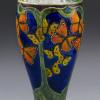

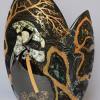
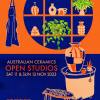
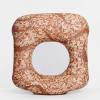
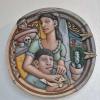



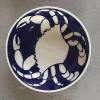


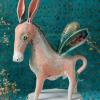


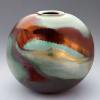
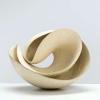
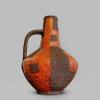

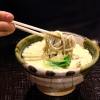

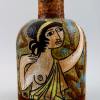
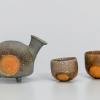
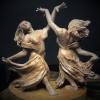
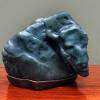

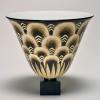

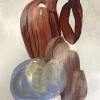



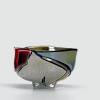

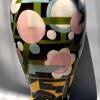


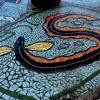

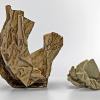
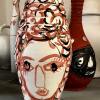
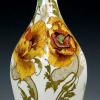


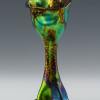
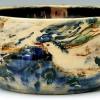
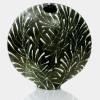

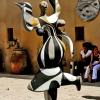
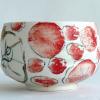
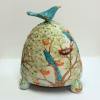

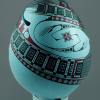
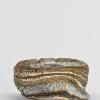
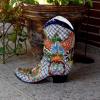
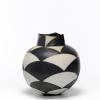
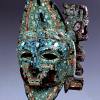
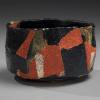
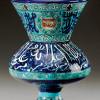


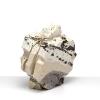

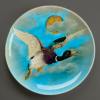
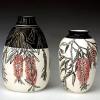
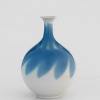
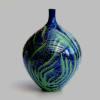
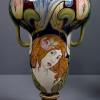
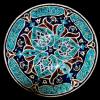
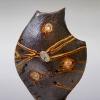
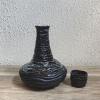
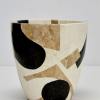
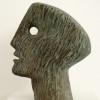
8 Comments
Very beautiful , raw and innovative
Oh, you know me! I know you. A cup, cup, cup, cup, cup, cup , cup! That vessel. Sacred or profane, by any other name: a rose.
Incredible beautiful yunomi!
Thank you for sharing this amazing collection. It was a true joy to look at.
Fabulous selection, Robbie. Outstanding examples. Thank you.
N.
Very informative article with wonderful pictures of contemporary work. One thing to note , though, is that the bulk of porcelain in Japan ( for more than one hundred years) is Amakusa stone. Izumiyama is not even mined currently, and the remaining supply is limited.
Thank you Robbie on your info. The collection of contemporary
Japanese works is a feast for the eyes and music to my soul.
Its all inspiring to the creative spirit.
And wow! to the Japanese potters – you do it so well.
Great presentation! Wonderful examples, while honoring their historical antecedents, of inventive, contemporary work. Those Mino potters would approve.